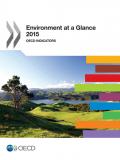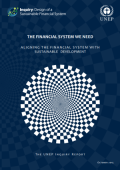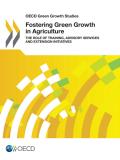
Environment at a Glance 2015 updates key environmental indicators and relevant socio-economic and sectoral indicators to track OECD country progress on major environmental issues and inform policy development and evaluation. This year's edition includes increased coverage of environmentally related taxation, ODA and R&D expenditure.


Knowledge investment supporting the adoption of environmentally friendly farm practices is a key driver behind innovation processes in agriculture, yet impact evaluations and financial assessments of existing initiatives remain scarce despite dramatic changes in orientation, organisation and intervention. This report examines the role, performance and impact of farm advisory services, training and extension initiatives in the OECD area to foster green growth in agriculture. Based on a series of case studies, the report discusses a range of methodological issues and the merits of the different types of providers, and identifies best practices in sustainable agricultural management.
This study, undertaken by Eunomia Research & Consulting (Eunomia) in conjunction with Professor Mikael Skou Andersen of Aarhus University and the Institute for European Environmental Policy (IEEP), has, as its central aim, to: “… provide empirical data or secondary sources on the potential economic and social benefits of environmental fiscal reform, to support the input in the European Semester process on environmental protection and resource efficiency”. The specification elaborates on this as follows: “The task includes presenting data on the potential of revenues from environmental taxation and other indirect benefits such as job creation resulting from EFR in 14 selected countries, using the methodology the EEA has developed and which was also applied to the study published on 03.03.14 for 12 Member States”. The following 14 Member States were included in this study: Bulgaria, Cyprus, Denmark, Finland, Germany, Greece, Latvia, Malta, Netherlands, Slovenia, Spain, Sweden, Ireland, United Kingdom.
In its new report ‘A Greener Budget: Sustaining our Prosperity in a Changing World’, WWF-UK sets out a suite of practical policy recommendations that would help to shift the UK to a sustainable, resource efficient, low-carbon economy.
Drawing on the latest evidence, the report shows how these policy measures are win-wins for the environment and the economy - cutting public sector costs, generating hundreds of thousands of new jobs, creating new market opportunities, improving UK competitiveness, and insulating the economy and businesses from growing risks of resource scarcity and climate change.
Some of these measures will pay off even in the short-term – such as cutting energy and resource use. UK businesses could save £23billion in the space of one year through no-cost or low-cost resource efficiency measures, based on Defra’s own estimates. Other evidence suggests that, over longer time frames, improving the UK’s resource efficiency could generate half a million new jobs by 2030.
